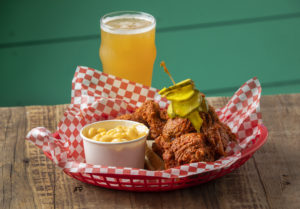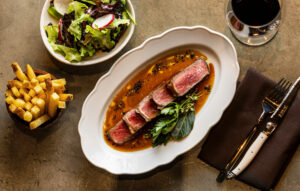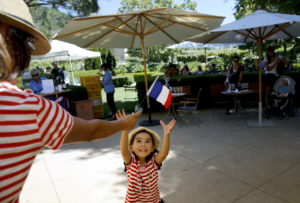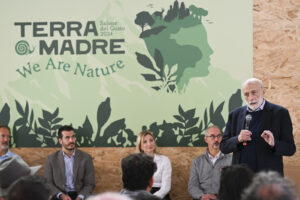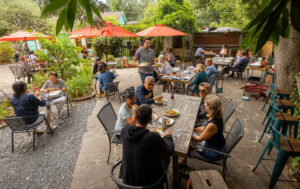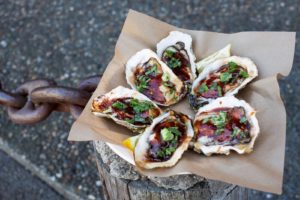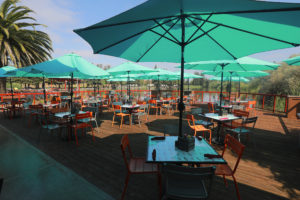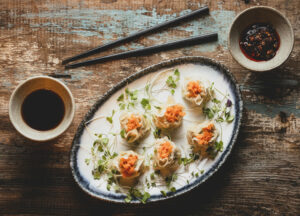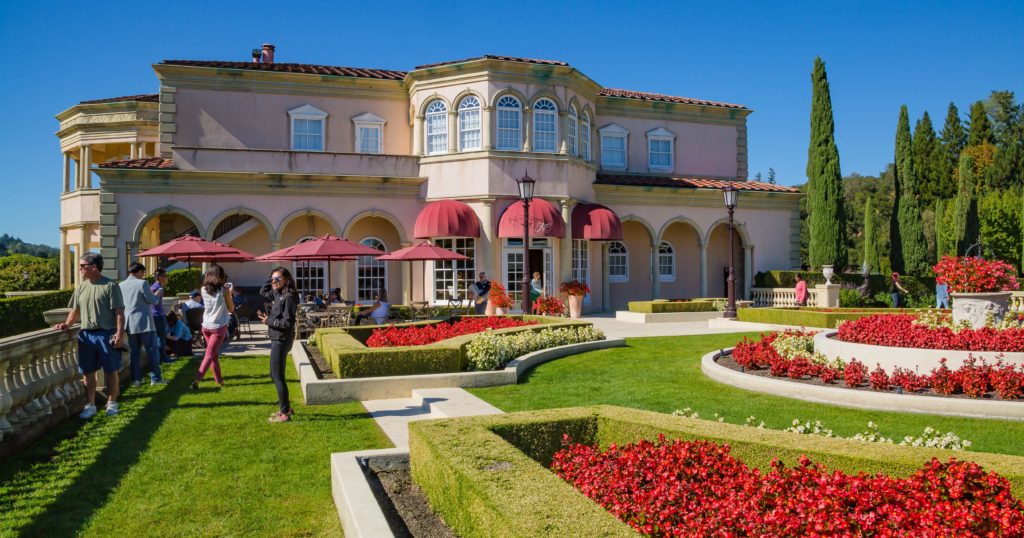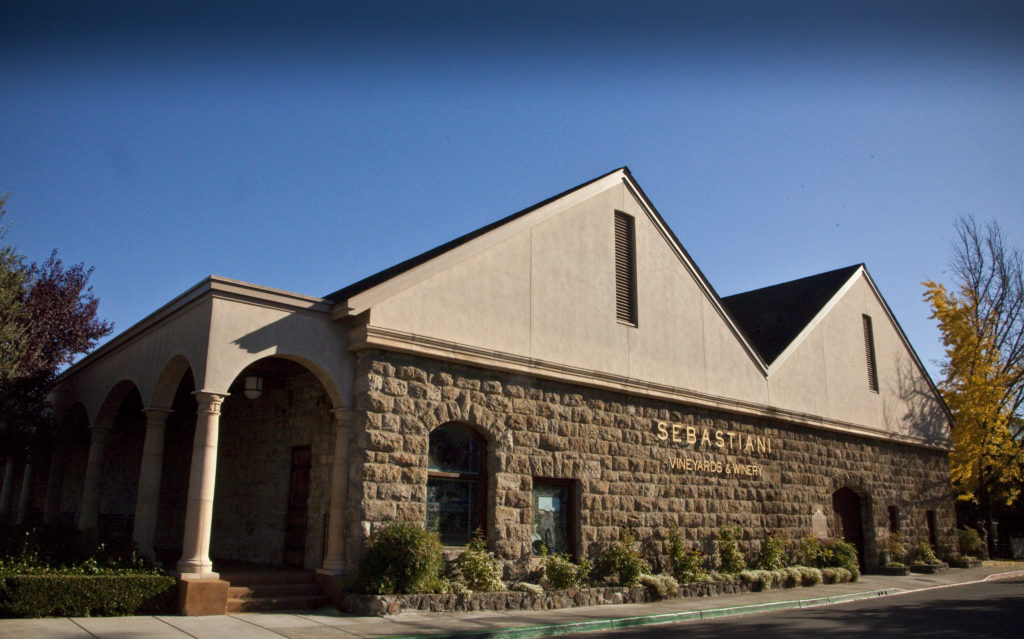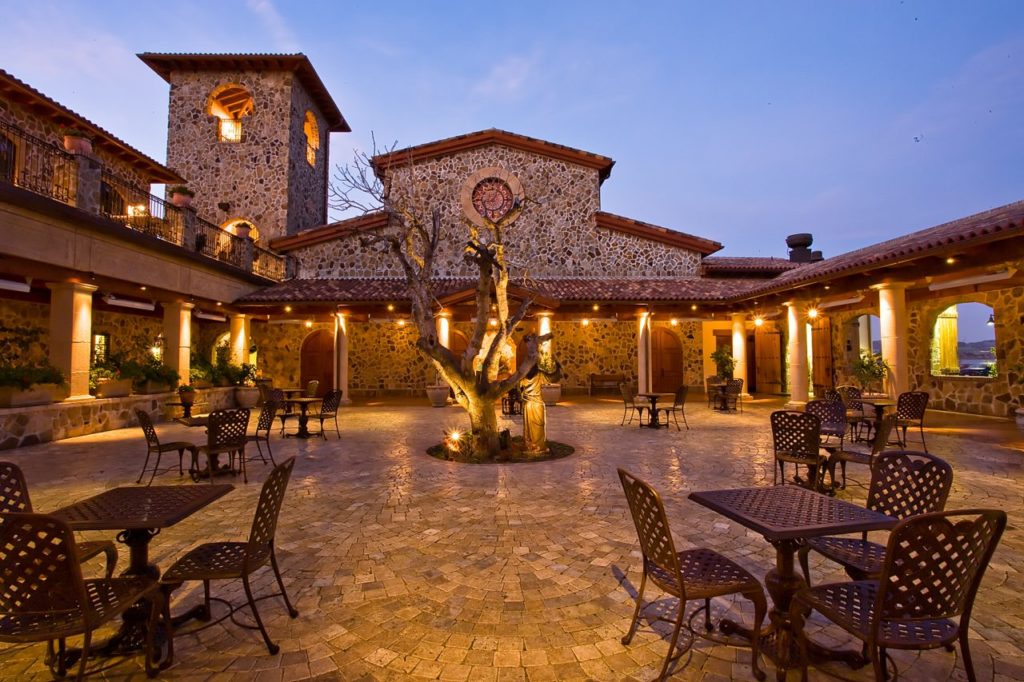Some of the most recognizable names in Sonoma wine are Italian: A. Rafanelli, Foppiano, Gallo, Martinelli, Pedroncelli, Rochioli, Sebastiani and Seghesio, to name just a few.
The founders of these wineries, largely from Italy’s Tuscany region, made their way to California in the mid- to late-1800s, many of them attracted by the Gold Rush. When the gold petered out, they scattered throughout the state, with large concentrations landing in Sonoma and Mendocino counties. The the soil and arid climate here reminded them of home and the grapes, tomatoes, peppers and olives they grew there to feed their families.
It’s a testament to the determination of Sonoma’s transplanted Italians that so many of their wineries flourish today, having weathered Prohibition, war and financial depressions. The rustic zinfandels, petite sirahs, barberas, carignanes and “mixed blacks” field blends they bottled a century ago have evolved into wines with more refinement and superior quality. Sangiovese, nebbiolo, aglianico and dolcetto and white varietals pinot grigio, vermentino, malvasia and moscato are now fashionable, their production encouraged by the children and grandchildren of those first-wave Italians.
COVID-19 has made travel to Italy nearly impossible right now, but not to worry. Several Sonoma wineries exude an Italian vibe that will remind visitors of Tuscany, without the plane flight or need for an English-to-Italian dictionary. Here are five that deliver a sense of la dolce vita, for their Italian brand names, wines produced, architecture, design and experiences offered. All winery visits are by appointment only and conducted outdoors.
Acorn Winery
Owners Betsy and Bill Nachbaur are not Italian, although their devotion to Italian grape varieties and old-vine zinfandel is as strong as a Tuscan day is long. The couple purchased Alegría Vineyard in 1990, located in the southeastern, warmest section of Russian River Valley and originally part of the 1841 Sotoyome land grant. It was planted, beginning in the 1890s, to a dizzying array of varieties, among them zinfandel, sangiovese, alicante bouchet, petite sirah, carignane, syrah, bastardo and graciano.
Bill, who thought he would be a lawyer, instead jumped headlong into viticulture. Betsy soon joined him full-time in the business of growing grapes for other wineries. In 1994, they establish their own Acorn brand, holding back fruit for themselves and selling to a shorter list of producers. All their bold, hearty wines come from their vineyard — zinfandel, sangiovese, dolcetto, rosato (rosé), syrah, cabernet franc and proprietary blends Medley and Acorn Hill. Production is just 3,000 cases a year, and each wine is a “field blend” in which the primary variety is fermented with other grape types, adding depth and complexity.
Tastings are $30 per person and are personal, with Betsy or Bill pouring. Bill is happy to lead physically distanced, masked tours of the vineyard for those who are interested. Just say so at the time of booking.
12040 Old Redwood Highway, Healdsburg, 707-433-6440, acornwinery.com
Battaglini Winery & Vineyard
Everything old is new again at Battaglini. A visit here is refreshing for its lack of fussiness, reminiscent of tasting at a rural Tuscan winery where the ambiance comes from the rustic surroundings and hardworking people who obviously love what they do. Don’t be surprised if you smell food cooking on the stove, hear Italian music or see family members playing bocce when you arrive.
Giuseppe J. Battaglini came to the U.S. in 1956 with the desire to grow grapes as his family did in Tuscany. “Joe” met his wife, Lucia, in San Francisco in 1961, and in 1988, they were finally able to buy the Lagomarsino Winery in Santa Rosa. The zinfandel and petite sirah vines planted there, in what is now the Russian River Valley, date to 1885. They were sold under contract to Beringer Vineyards in Napa Valley; the Battaglinis were able to produce their first wines from their fruit with the 1994 vintage. Four zins and a petite sirah are made from the ancient vines; chardonnay, rosato (rosé) and late-harvest chardonnay are also poured.
2948 Piner Road, Santa Rosa, 707-318-8944, battagliniwines.com
Ferrari-Carano Vineyards and Winery
Second-generation Italian Americans Don and Rhonda Carano, hoteliers from Reno, built this grand Italian-inspired estate (with a hint of French château) in 1981. Don honored his grandmother, Amelia Ferrari, by adding her to the winery name. F-C has been a visitor magnet for three decades, thanks to Rhonda’s exquisite gardens and fountain, the serene and expansive view of Dry Creek Valley from the north looking south and Villa Fiore, the hospitality center. The design is a modern replica of a northern Italian villa, with an Enoteca tasting bar in the underground cellar (not open during the pandemic) and tasting areas on terraces overlooking the vineyards.
Now part of the Foley Family Wines group, Ferrari-Carano debuted two new tastings this fall. The Sycamore Grove Tasting includes a flight of four single-vineyard wines paired with Italian-inspired bites, encompassing ingredients from the garden. $50 per person. There are two Il Terrazzo Tastings on the patio, with four wines and the option to purchase a cheese and charcuterie board. The Traditional tasting is $20 per person; Reserve is $30. The wines poured run the gamut, from Italian to Burgundian to Bordeaux varietals. Open Thursday through Sunday.
8761 Dry Creek Road, Healdsburg, 800-831-0381, ferrari-carano.com
Jacuzzi Family Vineyards
Fred and Nancy Cline, of Cline Family Cellars in Sonoma, opened Jacuzzi in 2007 to honor Fred’s grandfather, Valeriano Jacuzzi, whose family invented the famous spa pump. Valeriano, an immigrant from Carsasa, Italy, taught Fred how to grow wine grapes, and while the Clines first focused on Rhone-variety wines at Cline Cellars, Jacuzzi is devoted to Italian-style wines, among them arneis, moscato, pinot grigio, barbera, teroldego, aglianico, dolcetto and nebbiolo. Chardonnay and cabernet sauvignon are also produced.
The winery and visitor center, built across the street from Cline, were inspired by both the Jacuzzi family home in Italy’s Friuli-Venezia Giulia region and medieval monasteries. The large farmhouse-style stone structure has a watch tower and a main piazza in its center, where guests taste wine and picnic. An 80-some-year-old fig tree, transplanted to Sonoma from the Valeriani ancestral ranch, provides shelter from the elements. The interior — which will reopen after pandemic restrictions are eased — is filled with rustic furnishings, Italian art and a Venetian chandelier. The tasting bar and gift shop are crammed with visitors in high, non-COVID, season.
In 2013, the Clines purchased The Olive Press, adjacent to Jacuzzi. Their own olive oils, and those of others who contract for pressing services, are a big draw. The winery and olive press area are open 11 a.m. to 5 p.m. Monday through Thursday.
24724 Arnold Drive, Sonoma, 707-931-7575, jacuzziwines.com
Sebastiani Vineyards & Winery
Tuscan immigrant Samuele Sebastiani could not have predicted, when he founded his winery in the heart of Sonoma in 1904, that multigenerational squabbling over how to run the business would eventually force its sale. The saga is long and complicated, with a deep cast of characters, among them Samuele’s son and daughter-in-law, August and Sylvia, and grandchildren Don, Sam and Mary Ann, who eventually sold to Bill Foley, now of Foley Family Wines, in 2008.
The result today is a winery with a pared-down approach to producing a wide range of wines from Sonoma County grapes (in its heyday, Sebastiani’s second-label wines sourced grapes from throughout California) and offering visitor experiences that include telling the history of the Sebastiani family. Prior to Foley’s purchase, the hospitality center underwent a major redesign in 2001, with then-President and CEO Mary Ann Sebastiani Cuneo modernized the tasting room with an 80-foot curved bar of concrete and limestone, vaulted ceilings and retrofitted stone walls, columns and archways. Under coronavirus restrictions, Sebastiani offers daily seated tastings on its courtyard, 10:30 a.m. to 4:30 p.m. The Seated Wine Tasting is $35 for the Classic Flight and $40 for the Signature Flight. The Cherryblock Vineyard Tour and Tasting ($75) takes place in the vineyard north of the winery, planted to mostly cabernet sauvignon in 1961. Space heaters and a covered tent are available for cold or rainy days.
389 Fourth St. E., Sonoma, 707-933-3200, sebastiani.com


